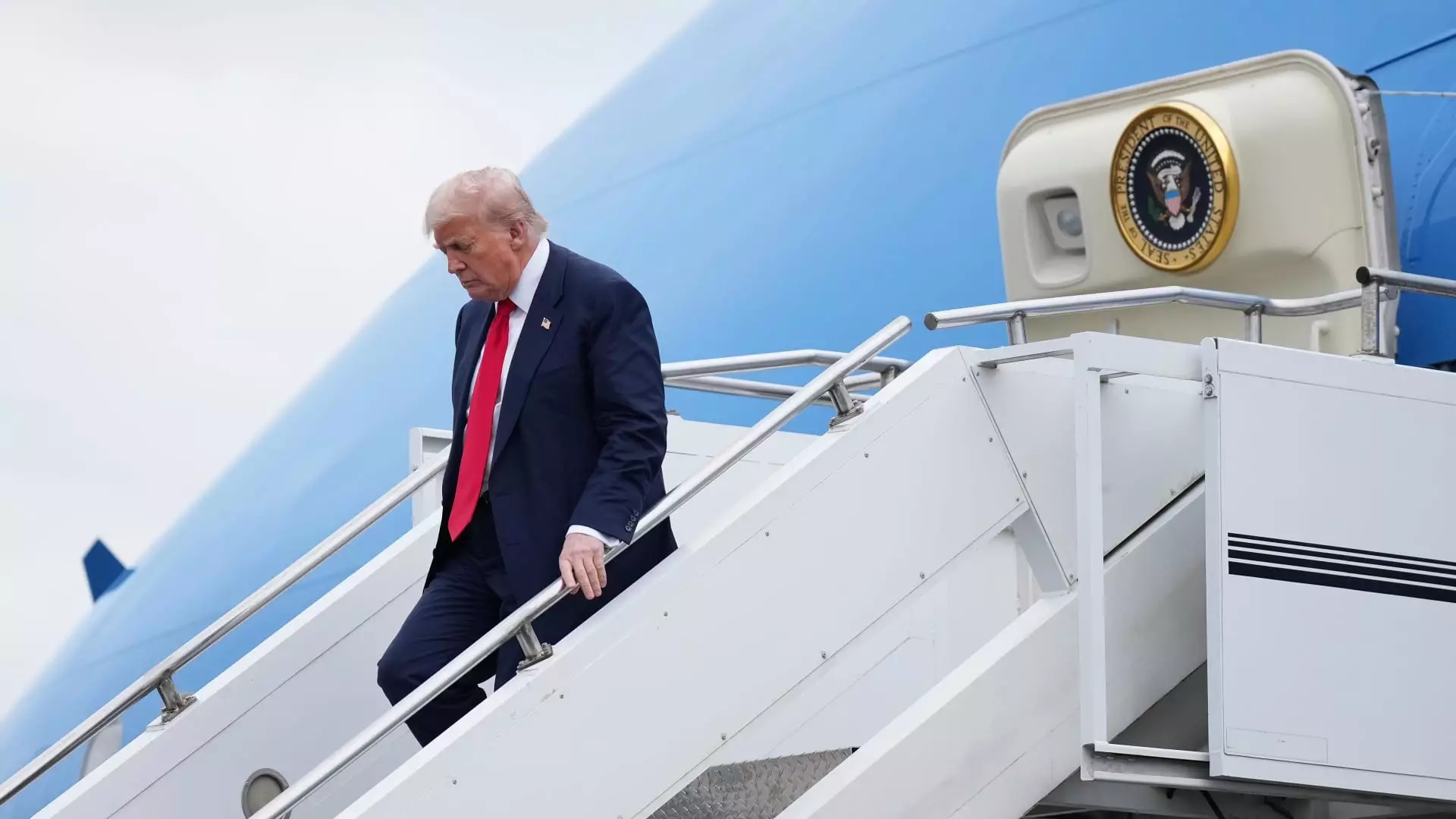The upcoming meeting between Ursula von der Leyen and Donald Trump epitomizes the perilous dance of geopolitics and economics that define the modern transatlantic relationship. With tariffs looming large on the horizon, the collective economic stability of two of the world’s most influential regions hangs in the balance. This negotiation is not merely about tariffs; it is a reflection of broader ideological tensions about free trade, protectionism, and global influence. The mere prospect of tariffs escalating to 30% on EU imports should send a warning sign that economic diplomacy is nearing a precipice, risking irreparable damage to longstanding alliances.
The optimism around a potential trade deal, often painted as a “balanced compromise,” conceals underlying fragilities. A 15% tariff might seem moderate on paper, but in practice, such measures threaten to derail decades of integrated economic cooperation. The European Union, wielding considerable trade leverage, must recognize that conceding to such terms could undermine its strategic economic interests. Conversely, America’s pursuit of a favorable deal reflects a desire to assert dominance in global markets, but it also ignores the potential long-term costs—namely, alienation and economic retaliation from the EU.
The Political Theater and Diplomatic Risks
Trump’s visit to Scotland, coupled with talk of a “50/50” chance for a deal, reveals a broader theatricality underlying these negotiations. His casual tone masks the seriousness of the stakes, which could have profound implications for global trade. Agreements come at the expense of complex political signals—whether unilateral tariffs or bilateral trade partnerships—that recalibrate power structures globally. The U.S. seems more focused on gaining short-term leverage than fostering sustainable relations, a move that risks pushing Europe towards self-reliance and strategic autonomy.
Meanwhile, the EU’s response to U.S. tariff threats is not only about economic calculations but also about defending its sovereignty. The bloc must consider whether accepting a modest tariff rate is a prudent choice or a capitulation that will weaken its position in future negotiations. The recent U.S.-Japan framework indicates that both sides are comfortable establishing baseline tariffs as a foundation for trade deals; however, this approach must be scrutinized for its long-term repercussions. Will it entrench a new norm of transactional diplomacy, or serve as a foundation for more equitable cooperation?
The Illusive Promise of a Win-Win Scenario
The narrative of negotiations often hinges on the myth that compromises are mutually beneficial, yet this ideal may obscure the harsh reality—these deals carry significant costs. A 15% tariff structure, while seemingly moderate, could set a disturbing precedent where economic aid is exchanged for political favors rather than genuine partnership. The EU’s confidence in avoiding a full-blown trade war may be misplaced if what emerges are half-measures or superficial agreements.
Furthermore, the broader geopolitical context complicates matters. Biden’s administration, though focused on strengthening alliances, appears to be playing a delicate balancing act—upholding transatlantic ties while navigating an increasingly assertive China and a resurgent Russia. The U.S.-EU trade negotiations, therefore, are not just about tariffs but about positioning for future global dominance. While some may argue that concessions are pragmatic, in moral terms, capitulations under the guise of expediency threaten the very fabric of multilateral liberalism that both sides have long purported to uphold.
Unintended Consequences and Strategic Mistakes
The danger lies in the potential for these negotiations to devolve into a cycle of escalating tariffs and retaliations, with economic damage hitting both sides hardest. The proposed 15% tariffs, though framed as a compromise, may be viewed by the EU as a strategic threat—prompting retaliatory measures that could ultimately diminish the global trading system’s stability. The U.S. must recognize that the allure of short-term gains often masks long-term costs: weakened alliances, reduced market confidence, and diminished influence on the world stage.
Sean economists warn that settling for a “bad deal” is worse than no deal at all. It risks embedding a precedent where power politics usurp economic righteousness. This is not merely about tariffs; it is about the future of global cooperation—a future that demands genuine diplomacy, transparency, and respect for mutual interests. If Europe unwittingly accepts a framework that favors American protectionism dressed up as “negotiation,” it may find itself further marginalized in the new geopolitical landscape.
The core issue remains: are these negotiations about creating a fair, sustainable trade environment, or are they merely pawns in a larger game of geopolitical posturing? History warns us that hasty concessions and superficial agreements rarely serve the common good. The challenge for Europe—and for anyone who values free and fair trade—is to see through the veneer of immediate political gains and consider the broader implications for global economic stability.

